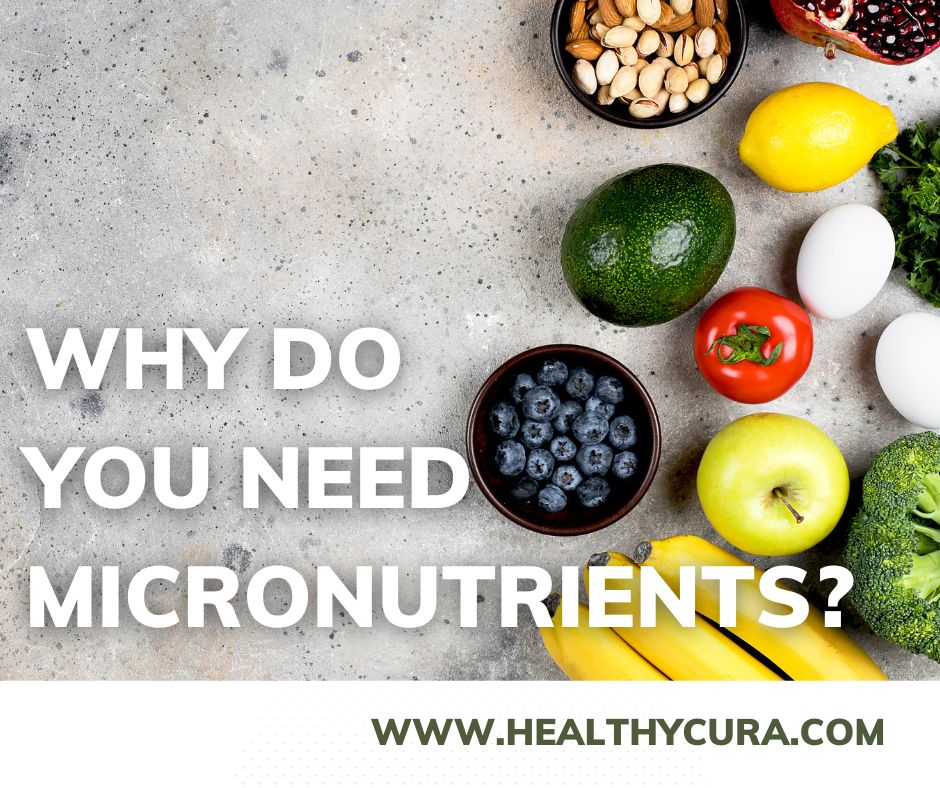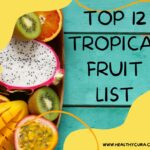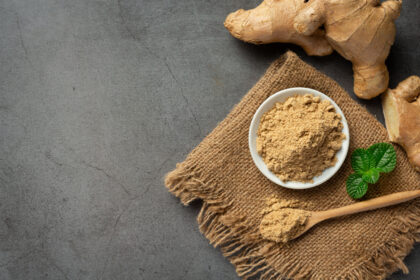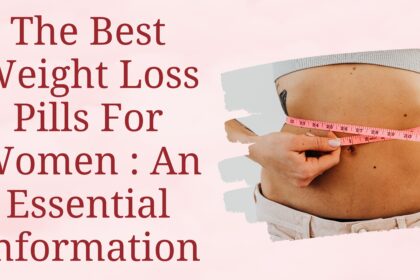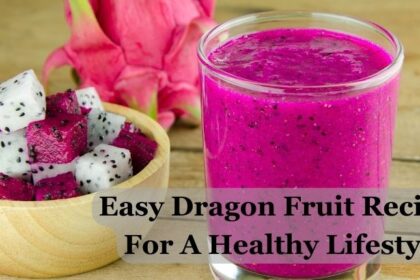You might be wondering, why you need micronutrients. Here you’ll get the answer.
One of the most important things I can tell you about your health is that nutrition is one of the most important aspects. Along with exercise, it determines the quality of your life and how well you feel.
Nutrition encompasses so many related topics: healthy food, vitamins, minerals, and micronutrients which are substances found in our food that are necessary for good health.
Introduction
A healthy diet requires more than just the right macronutrients (carbohydrates, proteins, and fats). Micronutrients (vitamins and minerals) are essential for proper cell function, metabolism, and overall health.
While you can get some micronutrients from the food you eat, many people don’t get enough of these important nutrients from diet alone. This is why taking a daily multivitamin is important for most people.
Micronutrients are involved in countless biochemical reactions in the body. For example, vitamin C is necessary for the synthesis of collagen, while the iron is required for red blood cell production.
Without enough micronutrients, these processes cannot occur properly and your health suffers as a result.
Chronic deficiency of any micronutrient can lead to serious health problems.
For example, vitamin D deficiency can cause bone loss and muscle weakness, while an iron deficiency can lead to anemia.
Getting enough of all the essential micronutrients is important for maintaining good health.
What are Micronutrients?
We’ve all heard of macronutrients – carbohydrates, fats, and proteins.
These are the big guys that get all the attention when it comes to diet and nutrition. But there’s another type of nutrient that is just as important, if not more so, for our health: micronutrients.
Micronutrients are vitamins and minerals that our systems require in little amounts in order to operate effectively.
Unlike macronutrients, which provide us with energy, micronutrients do not provide any calories. However, they are absolutely essential for our health.
For example, vitamin A is essential for vision and immune function, while the iron is necessary for transporting oxygen in the blood. Without enough micronutrients, we can’t stay healthy.
Interestingly, even though we only need small amounts of micronutrients, they are often not easy to get from our diet. This is because they are not found in large quantities in most foods.
For example, you would need to eat about 10 tablespoons of peanut butter to get your daily recommended intake of vitamin E!
This is why it’s important to take a daily multivitamin or eat a variety of nutrient-rich foods like fruits, vegetables, whole grains, and lean protein.
By doing so, you can be sure you’re getting the nutrients you need to support your health.
Types of Micronutrients
There are two types of micronutrients: essential and non-essential. Essential micronutrients cannot be produced by the body and must be obtained through diet or supplements.
Non-essential micronutrients can be produced by the body, but their levels may become depleted due to illness or poor diet.
The six essential micronutrients are vitamins A, C, D, E, K, and B vitamins (thiamine, riboflavin, niacin, pantothenic acid, biotin, folate, and vitamin B12). These vitamins play important roles in maintaining vision, immune function, bone health, and red blood cell production.
The four non-essential micronutrients are iron, copper, zinc, and manganese. These minerals are required for a variety of vital functions including energy production, metabolism, DNA synthesis, and antioxidant protection.
Despite their small size, micronutrients are essential for good health. A balanced diet that includes a variety of fruits and vegetables is the best way to ensure adequate intake of these nutrients. However, some people may need to take supplements to correct deficiencies or meet higher needs.
Water Soluble Vitamins
Vitamins that dissolve in water are known as soluble vitamins. They include Vitamin C and the B vitamins (such as vitamins B1, B2, B3, B6, B12, folic acid, biotin, and pantothenic acid).
These vitamins are not stored in the body and need to be consumed daily. Because they’re water-soluble, any excesses are excreted in the urine.
They play an important role in many bodily functions including metabolism, red blood cell production, and immune system function.
A lack of water-soluble vitamins can lead to deficiencies which can have serious consequences. For example, a vitamin C deficiency can lead to scurvy while a vitamin B12 deficiency can cause anemia.
Fat Soluble Vitamins
Fat-soluble vitamins are a group of vitamins that are stored in the body’s fatty tissue. These vitamins need to be dissolved in fat before they can be absorbed into the bloodstream.
Vitamins A, D, E, and K are examples of fat-soluble vitamins.
Vitamin A is essential for healthy eyesight, bone development, reproduction, and cellular function and Vitamin D helps the body absorb calcium and is important for bone health.
Vitamin E is an antioxidant that aids in cell protection whereas Vitamin K aids in blood coagulation and bone health.
Fat-soluble vitamins are a group of nutrients that must be taken in through the diet as our bodies cannot produce them.
These essential nutrients play a vital role in many bodily functions such as vision, immunity, cell communication, and more! For example, did you know that without vitamin A we would go blind? Or that vitamin K is responsible for helping our blood clot?
Without these micronutrients, we would not be able to lead normal, healthy lives!
Why do you need micronutrients?
The body needs micronutrients to function properly. They play a role in many processes, including cell division, metabolism, and DNA repair.
Micronutrients are essential for good health. However, many people do not get enough of them from their diet. This can lead to deficiencies that can cause several health problems.
Most people need to take supplements to get the proper amounts of micronutrients. This is especially important for people who have certain medical conditions or who do not eat a balanced diet.
Micronutrients are important for overall health and well-being. If you think you may be deficient in any of them, talk to your doctor or a registered dietitian to find out how to best meet your needs.
The Benefits of Micronutrients
When it comes to our diets, we tend to focus on macronutrients like protein, carbohydrates, and fats. However, we often overlook the importance of micronutrients.
Micronutrients are essential vitamins and minerals that play a vital role in our overall health and well-being.
Some of the many benefits of micronutrients include:
- They support a healthy immune system: Vitamins A, C, and E are all antioxidants that help boost immunity. Minerals like zinc and selenium are also essential for a healthy immune system.
- They promote healthy growth and development: Micronutrients like iron, calcium, and iodine are critical for normal growth and development.
- They help convert food into energy: B vitamins are necessary for converting food into energy that our bodies can use.
- They protect against chronic diseases: Micronutrients like vitamins A, C, and E have been shown to reduce the risk of chronic diseases like heart disease, cancer, and stroke.
- They enhance cognitive function: Vitamins B6 and B12 have been linked to improved cognitive function and memory recall. In addition, omega-3 fatty acids (a type of fat found in fish) have been shown to improve cognitive function and reduce the risk of Alzheimer’s disease and dementia.
Micronutrients Blood Test
Micronutrient blood tests can help you determine whether you are getting enough of the essential vitamins and minerals that your body needs.
This type of test can be especially helpful if you are feeling fatigued or have other symptoms that could be related to a deficiency.
Some of the nutrients that can be measured with a micronutrient blood test include vitamins A, B6, B12, C, D, E, and folic acid. Certain minerals such as calcium, chromium, copper, iodine, magnesium, selenium, and zinc can also be tested.
This comprehensive test can help determine if any of your symptoms are related to a deficiency in any of these essential vitamins or minerals.
What if you have Micronutrients Deficiency?
If you have a micronutrient deficiency, it can lead to several health problems. For example, a lack of vitamin A can cause night blindness and skin problems.
A lack of vitamin C can weaken the immune system and lead to scurvy. A lack of iodine can cause goiters and mental retardation. And a lack of iron can cause anemia and fatigue.
The best way to prevent these deficiencies is to eat a balanced diet that includes plenty of fruits, vegetables, whole grains, and fortified foods.
You should also take a daily multivitamin supplement to ensure that you’re getting all the nutrients you need.
Are there any side effects to taking too many micronutrients?
Yes, there can be side effects to taking too many micronutrients.
Taking more than the recommended amount of any vitamin or mineral can lead to health problems.
For example, too much vitamin A can cause headaches and liver damage, while too much iron can lead to nausea and vomiting.
It is therefore important to speak with a healthcare professional before taking any supplements, to ensure that you are taking the right amounts of vitamins and minerals.
The best foods to get micronutrients from?
There are a variety of foods you can eat to get micronutrients. Some good choices are listed below:
Fruits and Vegetables
Fruits and vegetables are an excellent source of micronutrients. They are packed with vitamins, minerals, and antioxidants that your body needs to function properly. To get the most out of your fruits and veggies, eat a variety of them.
Lean Protein
Lean protein is also a good source of micronutrients. It is rich in B vitamins, iron, zinc, and other nutrients that are essential for your health Choose lean proteins like chicken, fish, tofu, and legumes.
Whole Grains
Whole grains are another excellent source of micronutrients. They contain vitamins, minerals, fiber, and antioxidants that your body needs. Select whole-grain bread and cereals, as well as brown rice, quinoa, and oats.
Dairy Products
Dairy products are also a good source of micronutrients. They contain calcium, phosphorus, magnesium, and other nutrients that are essential for your health. Select low-fat or fat-free dairy items including milk, yoghurt, and cheese.
Nuts and Seeds
Nuts and seeds are another excellent sources of micronutrients. They contain vitamins, minerals, healthy fats, and antioxidants that your body needs. Choose nuts and seeds such as almonds, walnuts, pistachios, and chia seeds.
Fish
Fish is an excellent source of micronutrients. It is rich in omega-3 fatty acids, vitamin D, and other nutrients that are essential for your health. Eat a variety of fish such as salmon, tuna, mackerel, and sardines.
Fortified Foods
Fortified foods are also a good source of micronutrients. They contain added vitamins and minerals that your body needs. Choose fortified foods such as cereal, milk, and orange juice.
Supplements
Supplements can also help you get the micronutrients your body needs. Talk to your doctor about taking supplements if you are not getting enough micronutrients from your diet.
Micronutrient Supplements
When it comes to staying healthy, micronutrients are essential Micronutrients are vitamins and minerals that the body needs in little concentrations in order to function effectively.
While macronutrients like carbohydrates and proteins provide the body with energy, micronutrients help support metabolism, cell growth, and other important functions.
Most people can get the micronutrients they need by eating a varied diet that includes fruits, vegetables, whole grains, legumes, nuts, and seeds. However, some people may not be able to get all the micronutrients they need from diet alone and may require supplements.
Certain groups of people are at risk for deficiency in specific micronutrients. For example, pregnant women or women of childbearing age may need supplemental iron due to blood loss during menstruation.
Vegans or vegetarians may also be at risk for deficiencies in certain vitamins and minerals since they are not getting them from animal products. Older adults are also at risk for deficiencies in vitamin D and calcium due to reduced sun exposure and bone loss.
If you think you may be deficient in a particular micronutrient, talk to your doctor or a registered dietitian about whether supplementation is right for you.
Are you having enough Micronutrients?
Most people are familiar with macronutrients, which are the nutrients that the body needs in large amounts to maintain energy and health.
These include proteins, carbohydrates, and fats. Some people, however, may need to consume supplements to make sure they are getting receiving adequate amounts of these essential nutrients.
Micronutrients are vitamins and minerals that the body needs to function properly. They are essential in numerous bodily activities, including metabolism, immunity, and cell development and repair.
Despite their small size, micronutrients have a big impact on our health.
A lack of micronutrients can lead to deficiency diseases such as scurvy (a vitamin C deficiency), rickets (a vitamin D deficiency), and anemia (an iron deficiency).
Deficiencies can also cause several other health problems including fatigue, Poor immunity, and difficulty concentrating.
Most people get the vitamins and minerals they need from a well-balanced diet.
Some people, however, may need to take micronutrient supplements to make sure they’re getting sufficient amounts of these essential nutrients. This is especially true for pregnant women, older adults, vegetarians, or people with certain medical conditions that affect the absorption or utilization of nutrients.
If you think you might be deficient in any vitamins or minerals, talk to your doctor or registered dietitian about whether you should take supplements.
Conclusion
There are many reasons to make sure you’re getting enough micronutrients in your diet. They help keep your immune system strong, support healthy brain function and play a role in energy production.
Without them, you would be at risk of developing serious health problems. Fortunately, there are many easy ways to get the micronutrients you need, like eating a varied diet or taking a daily multivitamin.
So don’t wait any longer — start incorporating micronutrients into your diet today!
